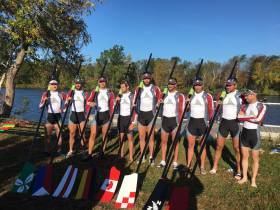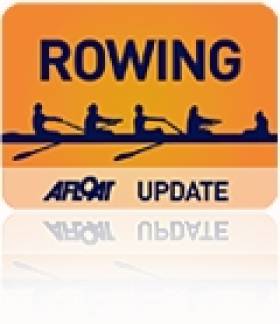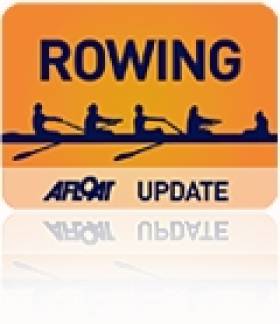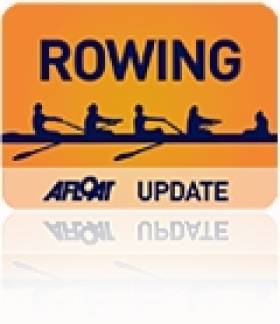Displaying items by tag: Boston
Paul O'Donovan in Great Eight of World Scullers
#Rowing: Paul O’Donovan, the lightweight single sculls world champion, ended his season on a high as he rowed in the Great8 of top scullers which took second at the Head of the Charles River in Boston. The University of California won in a record time. O’Donovan was the bowman and is seen in this picture on the left. The crew finished second, inside the old record.
Sanita Puspure was a key part of the women’s Great8 which won, and set a new record. Course specialist Genevra Stone stroked the crew having subbed into the boat for Magdalena Lobnig, who was ill.
Indoor Rowing World Title for McDonald of Shannon Rowing Club
#ROWING: Kenny McDonald of Shannon Rowing Club won the 40 to 49 lightweight class at the World Indoor Rowing Championships in Boston yesterday. McDonald headed up an Ireland one-two: Jonathan Doyle, the defending champion, was second. Greg Ruckman of the United States, a world champion in the 30-39 class just two years ago, was third.
McDonald is a former Ireland international rower, while Doyle was a runner who took up indoor rowing after being hit by injury.
CRASH B World Indoor Rowing Championships, Boston, United States (Selected Result)
Men, Lightweight Senior Master Men (40-49):
1 K McDonald (Shannon RC) 6:24.5, 2 J Doyle (Paddy Power IRC) 6:26.7, 3 G Ruckman (Colorado Rowing) 6:32.0.
Sheehan Strokes Notre Dame to Sixth Place in Head of Charles Rowing
#RowingHOCR: Notre Dame, with Ailish Sheehan of St Michael’s stroking, finished sixth in the women’s Championship Eights at the Head of the Charles in Boston on Sunday. In a race which featured some of the best women rowers in the world, Sheehan's crew finished more than 20 seconds faster than the Notre Dame crew finished last year and were in the small group which finished in under 17 minutes.
Head of the Charles, Boston, Sunday (Irish Interest, Selected Result)
Women’s Championship Eights: 1 Cambridge 15:59.54, 2 US Rowing 16:00.75; 6 Notre Dame 16:58.59; 18 Princeton 17:39.17.
Olympians Follow in Nixon's Wake as University of Virginia Impress
# ROWING: The University of Virginia crew, with Ireland’s Holly Nixon in the number three seat, put some of the top rowers in the world behind them as they finished third in the Women’s Championship Eight at the Head of the Charles in Boston yesterday. A “great eight” of top scullers, rowing as Cambridge BC, were the fastest crew, but they were penalised 10 seconds, thus yielding their win to the The United States in this time trial event. Canada’s Olympic silver-medal crew could only finish eighth and London Rowing Club, featuring British and New Zealand internationals were fourth. Nixon, who is just 18, is on scholarship to University of Virginia. She took a silver medal at the World Junior Championships last year.
































































